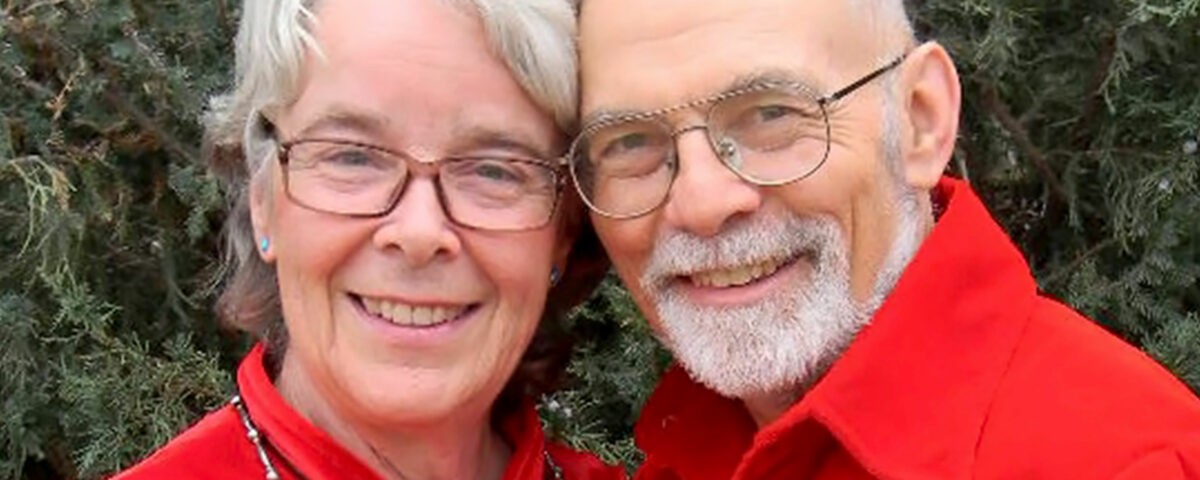As someone with deeply held convictions on peace, Ben Stoner registered as a conscientious objector during the Vietnam War — applying for voluntary service among the Navajo people.
Upon arriving at the Navajo Brethren in Christ Mission in New Mexico, Ben and Eunice (who were newly married) planned to stay two years. They have been serving among the Navajo for more than 40 years. In what they call “home,” Ben and Eunice have been church planters, teachers, and the director of the Navajo Brethren in Christ Mission, as well as have served in other capacities.
Q: In 1976, you and your young family moved into a one-room house near Chaco Canyon, New Mexico, while serving Chaco (N.M.) BIC for three years. Tell us about that experience.
There was no electricity or running water. We chopped wood, dug coal, hauled our water, and took our laundry to the mission once a week. Living like the Navajo there, we spent a lot of time and energy on daily living.
And we learned to cope with rattlesnakes. Because we had no telephones, we said, “In case of emergency, pray.”
Q: Having presented the gospel in many educational contexts, you have found one of the most powerful ways to share the good news is through a chronological study of the Bible. Tell us more about the study.
In the Navajo story tradition, they always start with their creation story.
So, we realized we needed to tell the story of the gospel by returning to the beginning. God has used Firm Foundations: Creation to Christ (the chronological study) to open doors for many Navajo to begin a personal relationship with Jesus. We also have translated it into Navajo, which makes the gospel come alive for the Navajo, especially for the elders in the community.
Q: How has the historical relationship between Westerners and the Navajo people affected your ministry?
The Navajo have suffered cruelty throughout their history: In the 15th century, Pope Nicholas V affirmed that when you “discover” land, you could do as you wish with the native peoples. With the release of this Doctrine of Discovery, European colonists abused and persecuted the indigenous people of the Americas.
Then, during the Long Walk of the Navajo from 1864-1865, the Navajo were deported, forced to leave their land for New Mexico. In 1868, they could return to some of their land. But an inordinate amount of pain for the Navajo still exists today. We are white, so we represent injustice. In the last several years, we’ve started talking with the Navajo people about their history, apologizing for the atrocities they’ve experienced. We’ve found acknowledging the abuse they’ve received has been one small step in bringing about healing.
Q: Much of the alcoholism and poverty existing among the Navajo community is related to the abuse and persecution in their history. How have you addressed such endemic concerns?
For many years, we have been focusing on a program called The Journey, working with individuals who suffer from addictions or abuse. It’s a 12-step program modeled after Celebrate Recovery or Alcoholics Anonymous. The program is a safe place for individuals to share their pain and abuse. And through the program, we have seen God’s healing in the lives of many individuals.
Finally, as we’ve participated, we’ve uncovered things from our past and began sharing our own stories. We’ve been amazed how sharing our stories frees others to share their stories, too!
Q: Can you provide an example how communicating your story helped someone else?
A young Christian man would binge drink every six months up to every two years. Then, for several days during each binge, no one could find him. Very concerned, I sat down with him. Part of my own story is that I had a fear of men, and I shared why with him.
I said, “I think there’s something that happened to you also — something that’s eating at you.”
He burst into tears. He had been sexually abused. He knew who did it. I even asked him, “Those who did it, what are they doing now?”
He responded, “They are all drunks now.” Other young boys he knew had been sexually abused as well, and he said they were now alcoholics.
As we shared, we cried and prayed. It was almost 10 years before he went on another binge. And as far as we know, he hasn’t done it again.
Q: How have you been part of affirming the Navajo culture?
The earliest missionaries told the Navajo, “You can’t do things the Navajo way.” That included shunning their musical style because the medicine man sang his prayers for the ceremony.
Now the Navajo language is tonal. Because the Navajo were not allowed to sing songs in their style, the tones of Navajo hymns were incorrect. Thus, the hymns didn’t make sense.
Being a music major, I felt it was incredibly important for the Navajo to sing their language in their style. After being asked multiple times from the Navajo to write a song, one day during church, I wrote a song in their style.
Once finished with writing it, I immediately sang it for the congregation. They asked we repeat it until the entire congregation learned it together. One grandmother had been in the church 20 years and couldn’t sing a hymn. Yet on that day she learned a song in the style of her people.
Since then, we have recorded numerous songs in the Navajo style.
Q: After more than 40 years of living among the Navajo people, what have you learned about cross-cultural ministry?
The Navajo culture focuses on saving face; they don’t want you to be embarrassed or t0 lose respect. So they may tell you something they think you want to hear. We learned not to ask questions, just to listen and to observe.
For example, one missionary told us this story: One day, an anthropologist came to a Navajo reservation, wanting answers to his questions about Navajo life. The local missionary introduced the anthropologist to the medicine man, who answered his questions. After the anthropologist left, the missionary took the medicine man aside and said, “You told him all these things that I never knew.”
The medicine man replied wryly, “The white man asks questions, and he wants answers — we give answers.”
If you would like to support the Stoner’s work among the Navajo people, please commit to praying for them or donate now.


